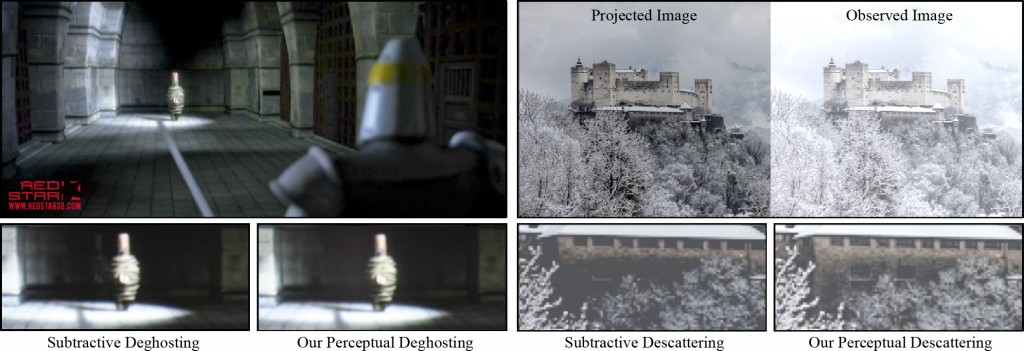Abstract

This paper addresses the problem of unintended light contributions due to physical properties of display systems. An example of such unintended contribution is crosstalk in stereoscopic 3D display systems, often referred to as ghosting. Ghosting results in a reduction of visual quality and may lead to an uncomfortable viewing experience. The latter is due to conflicting (depth) edge cues, which can hinder the human visual system (HVS) proper fusion of stereo images (stereopsis). We propose an automatic, perceptually-based computational compensation framework, which formulates pollution elimination as a minimization problem. Our method aims to distribute the error introduced by the pollution in a perceptually optimal manner. As a consequence ghost edges are smoothed locally, resulting in a more comfortable stereo viewing experience. We show how to make the computation tractable by exploiting the structure of the resulting problem and also propose a perceptually-based pollution prediction. We show that our general framework is applicable to other light pollution problems, such as descattering.
Copyright Notice
The documents contained in these directories are included by the contributing authors as a means to ensure timely dissemination of scholarly and technical work on a non-commercial basis. Copyright and all rights therein are maintained by the authors or by other copyright holders, notwithstanding that they have offered their works here electronically. It is understood that all persons copying this information will adhere to the terms and constraints invoked by each author’s copyright. These works may not be reposted without the explicit permission of the copyright holder.